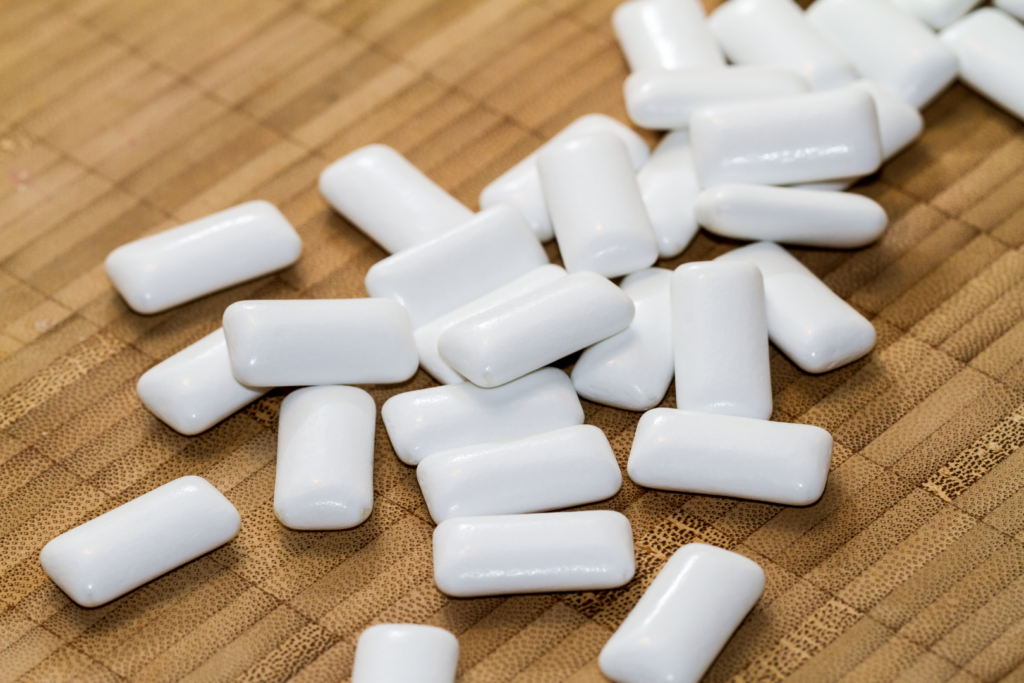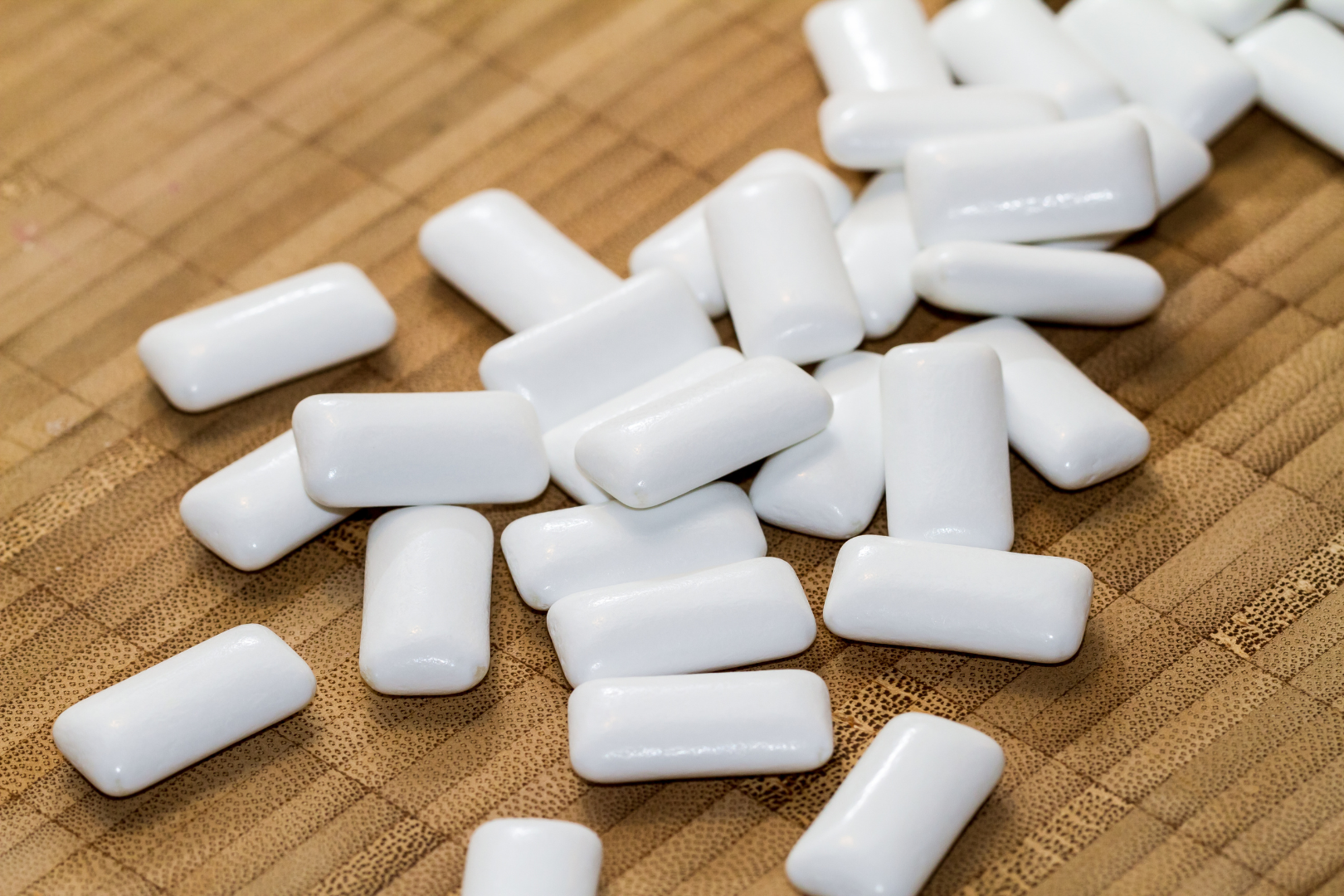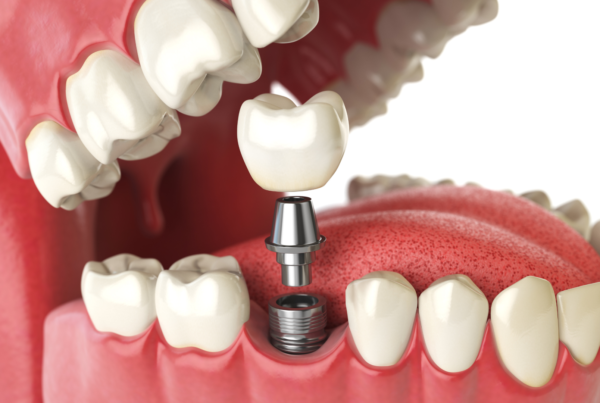In recent years, xylitol has become a buzzword in the dental community, with many touting its benefits for oral health. At Smile Keepers in Brenham, Texas, we believe in providing our patients with accurate, evidence-based information to help them make informed decisions about their dental care. In this comprehensive guide, we’ll explore the facts behind xylitol and its impact on dental health, separating the hype from the reality.
What is Xylitol?
Xylitol is a natural sugar alcohol found in small amounts in many fruits and vegetables. It’s also produced commercially from corn cobs or birch trees and is used as a sugar substitute in various products, including chewing gum, candies, and oral care items.
Key Properties of Xylitol:
- Tastes similar to sugar but with fewer calories
- Does not raise blood sugar levels significantly
- Has a low glycemic index
- Cannot be metabolized by oral bacteria

The Dental Benefits of Xylitol
Xylitol has gained attention in the dental world due to its potential to reduce the risk of tooth decay and improve overall oral health. Let’s examine the scientific evidence behind these claims.
Reducing Harmful Bacteria
One of the primary ways xylitol benefits dental health is by inhibiting the growth of Streptococcus mutans, the main bacteria responsible for tooth decay. Xylitol disrupts the energy production processes of these bacteria, leading to a futile energy cycle and eventual cell death.
Decreasing Plaque Formation
Studies have shown that xylitol can reduce plaque formation and bacterial adherence to teeth. This antimicrobial effect helps maintain a cleaner oral environment, reducing the risk of cavities and gum disease.
Increasing Salivary Flow
Xylitol stimulates saliva production, which is crucial for maintaining oral health. Increased saliva flow helps neutralize acids, remineralize tooth enamel, and wash away food particles and bacteria.
Raising Oral pH
By increasing salivary flow and pH levels, xylitol creates a less acidic oral environment. This higher pH is less favorable for cavity-causing bacteria and helps protect tooth enamel from acid erosion.
Clinical Evidence Supporting Xylitol Use
Numerous studies have demonstrated the effectiveness of xylitol in preventing dental caries and improving oral health.
Caries Reduction
A long-term study conducted in Belize showed that children who chewed xylitol-sweetened gum experienced a 73% reduction in tooth decay compared to those who didn’t use xylitol. Other studies have reported caries reductions ranging from 21% to 85%, depending on various factors such as xylitol concentration and frequency of use.
Long-Term Benefits
Research has shown that the benefits of xylitol use can extend beyond the period of active consumption. A study found that children exposed to daily xylitol use for 12-40 months continued to experience decreased caries incidence up to 5 years after cessation of xylitol use.
Remineralization Effects
A study among Montreal children demonstrated that those who chewed xylitol gum not only had lower caries progression after 24 months but also exhibited a higher number of reversals of carious lesions, suggesting that remineralization had occurred.
Recommended Usage of Xylitol
To maximize the dental benefits of xylitol, it’s important to use it correctly and consistently.
Optimal Dosage
The American Academy of Pediatric Dentistry recommends a total daily dose of 5-8 grams of xylitol, divided into at least three exposures per day. This dosage has been shown to effectively reduce S. mutans levels and provide optimal caries prevention.
Frequency of Use
Research suggests that the frequency of xylitol exposure is more important than the total amount consumed. A “Strive for Five” regimen, where xylitol is consumed five times throughout the day, is often recommended for maximum benefit.
Forms of Xylitol
Xylitol can be found in various forms, including:
- Chewing gum
- Mints and candies
- Toothpaste
- Mouth rinses
- Nasal sprays
- Dietary supplements
Xylitol in Oral Care Products
Many oral care products now incorporate xylitol due to its dental benefits. Here’s how xylitol enhances these products:
Xylitol Toothpaste
Toothpaste containing xylitol has been shown to decrease S. mutans colonies in saliva, increase saliva production, and raise pH levels. When combined with fluoride, xylitol can enhance the cariostatic effects on tooth enamel.
Xylitol Mouth Rinses
Mouth rinses containing xylitol can help reduce plaque formation and provide additional protection against tooth decay when used as part of a comprehensive oral care routine.
Xylitol Chewing Gum
Sugar-free chewing gum sweetened with xylitol is one of the most studied and effective ways to deliver xylitol’s benefits. Regular use of xylitol gum has been shown to reduce caries risk by up to 59%.
Xylitol for Special Dental Needs
Xylitol can be particularly beneficial for patients with unique dental requirements:
Dry Mouth Sufferers
Patients experiencing dry mouth can benefit from xylitol’s ability to stimulate saliva production, providing relief and improving oral health.
High Caries Risk Patients
For individuals at high risk of dental caries, incorporating xylitol into their oral care routine can provide an additional layer of protection against tooth decay.
Orthodontic Patients
Patients with braces or other orthodontic appliances may find xylitol products helpful in maintaining good oral hygiene and reducing the risk of decalcification around brackets.
Potential Side Effects and Considerations
While xylitol is generally safe and well-tolerated, there are some considerations to keep in mind:
Digestive Issues
Consuming large amounts of xylitol can lead to digestive discomfort, including gas, bloating, and diarrhea in some individuals. It’s best to introduce xylitol gradually and stick to recommended dosages.
Not a Substitute for Good Oral Hygiene
While xylitol can be a valuable addition to an oral care routine, it’s not a replacement for regular brushing, flossing, and dental check-ups.
Xylitol and Pets
It’s important to note that xylitol can be toxic to dogs. Keep xylitol-containing products out of reach of pets.
The Future of Xylitol in Dentistry
As research continues, we may see even more applications for xylitol in dental care:
Combination Therapies
Studies are exploring the synergistic effects of combining xylitol with other preventive agents like fluoride and probiotics for enhanced caries prevention.
Targeted Delivery Systems
Researchers are investigating new ways to deliver xylitol more effectively, such as slow-release systems or incorporation into dental materials.
Expanded Applications
The potential benefits of xylitol for periodontal health and as an adjunct in treating oral infections are areas of ongoing research.
Wrap-up: Xylitol at Smile Keepers
At Smile Keepers in Brenham, Texas, we believe in staying at the forefront of dental care advancements. While xylitol shows promising benefits for oral health, we emphasize that it’s just one tool in a comprehensive approach to dental care.We encourage our patients to discuss incorporating xylitol into their oral care routine during their next visit. Our team can provide personalized recommendations based on individual needs and risk factors.
Remember, while xylitol can be a valuable addition to your dental care regimen, it’s not a magic solution. Maintaining good oral hygiene habits, a balanced diet, and regular dental check-ups remain the cornerstone of excellent dental health.By combining proven preventive measures with innovative approaches like xylitol use, we at Smile Keepers are committed to helping our patients achieve and maintain healthy, beautiful smiles for life.For more information about xylitol or to schedule an appointment, contact Smile Keepers in Brenham, Texas. Let us help you navigate the latest in dental care to keep your smile at its best!





